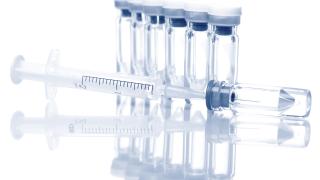With the coronavirus devastatingly resurgent this fall and cases spiking in areas previously untouched by the ravages of the pandemic, millions of people with underlying conditions know that they must take extra precautions because they are at increased risk for severe COVID-19 symptoms. The vulnerable include cancer patients and survivors, type 2 diabetes patients and those with cardiovascular or lung disease.
Another group, though, has less information to rely upon — patients with type 1 diabetes.
“Our data on type 1 diabetes and COVID are limited,” said Ping Wang, M.D., professor and chair of the Department of Diabetes, Endocrinology & Metabolism at City of Hope. “A lot of the earliest studies on COVID-19 didn’t differentiate which type of diabetes a patient may have. They just lumped the diabetes cases together in studies that showed it as a risk factor for poor patient outcomes.”
However, Wang points out, because type 1 diabetes accounts for 5 to 10% of all diabetes cases, those results likely reflect the risk faced by type 2 diabetes patients. More studies related specifically to type 1 diabetes are needed to provide clarity.
Wang urges type 1 diabetes patients to use an abundance of caution nonetheless. He points to certain mechanisms undergirding COVID-19 infection that may make it more dangerous for type 1 diabetes patients than the general populace.
The infamous “cytokine storm” often appears in serious illness from coronavirus. This is actually an excessive response from the body’s natural defenses that produces too many of a particular group of immune hormones known as cytokines.
Some cytokines activate a built-in self-destruct command coded in cells. But that isn’t the only action that make them pose a threat.
Cytokines Can Affect Blood Sugar
“These hormones can potentially damage the body’s ability to use insulin,” Wang said. “The inflammatory response can mess up glucose control and send blood sugar sky high.”
In addition to the inherent dangers of high blood sugar all too familiar to those with type 1 diabetes, patients whose blood sugar is poorly regulated — or elevated by a cytokine storm — may face an additional hazard.
“High blood sugar is bad for our immune system,” Wang said. “It makes it harder for the body to fight off the infection.”
This sketches out the potential for a vicious cycle in which severe COVID-19 infection drives up blood sugar, and high blood sugar sabotages the body’s defenses against COVID-19.
And then there’s another unwelcome synergy between the diseases: COVID-19 sometimes attacks organs that are often affected by complications of diabetes.
“With COVID-19 increasing the risk of heart and kidney problems, that effect would be multiplied for diabetes patients who already have complications of the heart or the kidney,” Wang said.
Of course, coronavirus infection can have deadly effects even for those without an underlying condition. This fact, taken together with the vicious cycle of biochemical interactions, suggests that type 1 diabetes patients should exhibit caution.
“The same general precautions are applicable to type 1 diabetes patients,” Wang said. “Social distancing, wearing masks, washing your hands and, if you have any signs of disease, consulting with your doctor right away and getting tested.”
“There’s been some good news about vaccines, and it may feel as though the solution is right around the corner, but the most spectacular vaccination campaign in human history could take a year or more. In the meantime, we have to do what we can to reduce the risk of exposure.”

